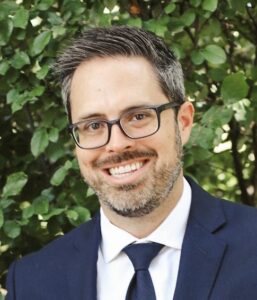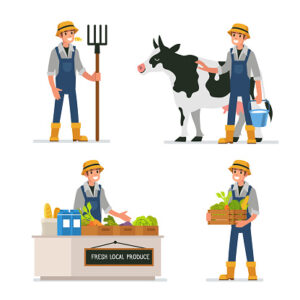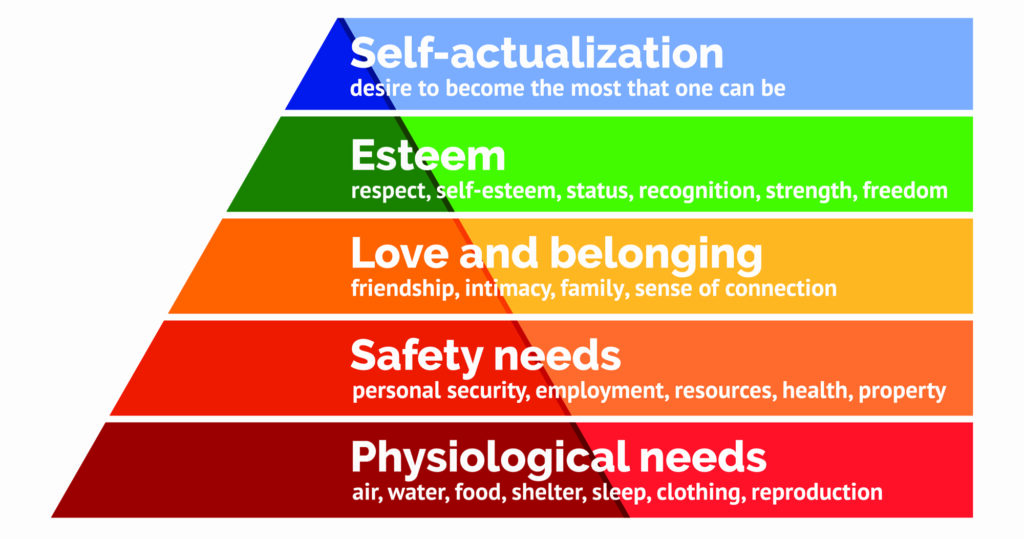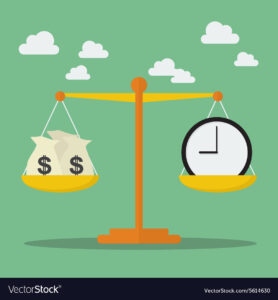“I missed out on the joy and the centeredness and the presence and the love that I’m desperately clawing back to”
In this episode I’m joined by my friend, entrepreneur Reese Harper, for a vulnerable conversation about the idea of being a provider, self-actualization, and how men and women together can collaborate to dismantle patriarchy in our workplaces.
Our Guest
Reese Harper

Reese Harper (he/him) is a financial advisor, a musician, and an entrepreneur. He loves outdoor recreation, writing, and spending quality time with his family.
An Interview with
Reese Harper
Amy Allebest: Welcome to Breaking Down Patriarchy. I’m Amy McPhie Allebest and today I am here with my friend, Reese Harper. Thank you so much for being on the show, Reese.
Reese Harper: I was super excited and a little nervous because I told myself I was just going to do this and not freak out about it or over-prep and just share what’s on my mind, but actually I have a lot of respect for what you’re doing and for the conversation this is starting, and I think it’s so important. I’m just excited to share what limited perspective I can share on the topic.
AA: Oh, I’m really excited and no need to be nervous—this is going to be a really fun conversation. Reese and I have known each other for a long time; 15 years, 16 years, something like that.
RH: Yeah, more than a decade for sure.
AA: Yeah, more than a decade and we haven’t had tons of contact in between actually. You’ve been closer friends with my husband, Erik, throughout the years, but Reese’s wife, Barbie Harper, did the episode on Invisible Women on our Season One and she’s just phenomenal; such a great reading partner, such a great mind, such a great person. We’re couples friends with the Harpers and we’ve had discussions about patriarchy through the years, and so Reese and I were talking one time and said maybe it’d be really great to have an episode on Season Two where Amy talks to a man and asks all the man questions when we have a spontaneous conversation about it. So you’re a brave soul to come on with no safety net and no script or outline, but just questions. And I really am grateful to you for being willing to have this conversation because it can be sticky, and it can make people feel vulnerable. And it can even venture into territory where people get feelings hurt. This is brave of you, and I appreciate you.
RH: Thanks a lot. I’m interested to get your feedback on a lot of the experiences I’m actually having on a regular basis around this topic.
AA: Well let’s dive in then. I mean, to me, it makes sense to start out chronologically. So if you can think of a framework or an anecdote or something from the way you grew up that demonstrates how you’ve seen patriarchy at play. We can start anywhere that comes to your mind.
RH: I mean, I grew up in a very conservative part of southern Idaho where I was on a farm and grew up with a family that had very traditional roles. I think a lot of listeners can probably relate to the expectations I kind of I saw with my grandparents and my dad, and I saw a world where my primary value proposition, per se, in the world and in my future family life was going to be providing. I was going to make money and that was going to be the way that I like showed up and brought value.

It’s been interesting for me to contemplate, at an early age, how that started to affect me. Every one of my peers and friends, it was always like What are you going to do for a living? What is your job? What are you going to? How is this person providing? And for me it was a particular set of farmers, right? This farmer had 20,000 acres, this farmer had 10,000 acres, this farmer had 300 acres. And you’re gonna be a potato farmer, you’re gonna be a bean farmer, you’re gonna be a rancher, you’re gonna be an irrigator, you’re gonna run the local store that supplies the farm equipment. It was all the stuff around who I was going to be.
Painting the story a little bit: growing up, that’s my life. I ended up deciding farming and agriculture wasn’t my thing. I ended up getting a music major (my undergrad was in music composition) and then I started a small music production studio in my basement called Do Re Media. That didn’t last very long because as soon as I had kids I realized that that wasn’t going to pay the bills the right way. So I got a master’s degree in finance and for about 15-17 years now I’ve been in several businesses that I’ve either built or sold and have to do with helping people with their money and making good money decisions.
I’m in FinTech, which is a part of the financial sector, that is, the part of the technology and software sector that’s really kind of a fast growing segment of our economy and one where there’s a lot of venture capital and investing happening. And then I’ve been part of the financial sector, not just software sector—the combination of two histories that are really underrepresented when it comes to women as executives and just as employees in general. I’ve really struggled with both the personal psychology that I’ve had from birth until now, my psychology as an employer, and the habits I’ve developed and the peers and the network that I have.
It’s been really eye opening to look at some of the regrets that I have as an adult, and acknowledge them openly. And see how they might be affecting my boys who—I have four kids, and I’ve got a daughter, and of course, Barbie.
I think that’s enough background to then dive into some of the topics, but you know: grew up in an agricultural conservative community, find myself now where I’m very much scheduled every 30 minutes of the day in one of the fastest growing sectors of the economy and very much not tied to agriculture, but I’ve just seen a lot in the journey of the last 10 or 15 years.
AA: That’s great. That’s a really excellent lay of the land. And now I can think of several different rabbit holes that I want to jump down that you just lined up, but do you have any that you want to go into?
RH: Well, I think one of them that for me is particularly a tender area is that as I’ve looked at my framing of my life, or the value that I bring into the world from this monetary lens. I was raised in a conservative Christian, kind of Orthodox Christian family, I was born Mormon and still consider myself a part of that community. I think this lesson really applies to a lot of different faith traditions, but I feel that the primary value that I placed on myself was that I was a provider. It was that of moneymaker, and to the degree that I did that more or better than an alternative person—I found value in that. And now that I’ve been successful and I feel like I have provided and money’s no longer the thing that I’m being scored on, I kind of look back at the things I didn’t bring to my marriage or my parenting that were more nurturing. The stereotypical female role that I kind of was absentee from, which is like, Was I a nurturer? Did I care about the homework? Did I care about my kids actually sitting down and talking with me about the intimate details of their life? Did I read books? Did I nurture?
I tried a lot along the way, but I didn’t realize until my mid-30s that I was not integrating any kind of diverse view of what it meant to be a parent. I found myself missing that aspect of my kids. My oldest is almost 16 and my youngest is almost eight (I have four kids) and there was just this moment where, a few months ago, I was sitting on the couch and talking to Barbie and I just broke down. I was super sad, and I don’t cry a lot. I’m kind of the more emotional parent in the relationship, but it was like, after I have been grinding for 20 years just trying to provide and now that I’ve done it—the money making part of my life, it’s not completely over but I’ve done enough to save up and be prepared for the future to where making money isn’t the primary thing I need to do anymore…but I kind of focused on that so much and so heavily and so hard that I missed a ton of experiences that I wanted to have. And I look back at my life and wonder what a little bit more balance would have brought into my marriage, both myself and for my wife, my partner, and what would she have been able to find fulfillment in if we would have had a little bit more balance? And what kind of a person would I have been? Would my health and my temperament and my development as a person have been different? If both the financial needs of our family would have been more balanced in how they’re being provided? Maybe from both of us, right? If I didn’t feel such a heavy weight…what kind of a person would I be?
If I was actually engaging in some of the more—as you guys have been discussing on your podcast—some of the more human kind of base labor; conditions that most women in the world are engaged in. It’s the laundry, it’s the food, it’s the meals, it’s the kids, it’s wiping the butts, it’s being involved with the things that’re super menial, that sometimes it just feel like they’re not worth the time that it takes to do it. You’re all efficiency driven and you’ve got to get stuff done as a provider, every time you see a task that can be done for $18 an hour, you’re just going to go I need to hire someone to do that task. I’ve got to get someone else in here to do this. I’ve got to work on $200 an hour work and $300 an hour work, right? And so you end up never actually feeling like you’re ready to engage in some of the things that really do shape you as a human.
I missed a ton of experiences that I wanted to have and kind of look back at my life and wonder what a little bit more balance would have brought…
I guess looking at that whole experience, you know, both the imbalance of pressure that I felt to provide, and the lack of development that I was able to have as a as a whole person…I’m not going to sit here and say patriarchy affected me equally as it did my wife because I think that the imbalance is still clearly in my favor. I’ve been able to experience more things and I’ve been able to have more flexibility of my time, more ability to decide to be an agent over my education and my time and my resources and deploying them how I wanted to. But, in a small way, I feel like I started to see the damage that patriarchy did to me as a man. I started to feel that I was bitter about it for the first time in my mid-30s, just going: man, I provided but I missed 15-20 years of experiences that now as an adult I deeply value. The memories and the presence and the centeredness that comes from loving and engaging with not just parenting, but for me in my life it was primarily that I feel like I missed so much. And you can’t get the time back. And there’s a lot of reasons that I could have made different choices along the way. They just weren’t on the radar.
Anyway. I’m just curious what resonates with you about that? Or what connects with you about any of that?
AA: Oh, it’s just so great. I love hearing that perspective. And I mean, one thing that I’m curious about as you were talking: from the time you were really little it sounds like that was—I mean, we grew up in the same faith tradition, and so I was listening to it as a girl going, Oh, my role is to nurture. And I’ll have the kids and I’ll stay home with them. And I didn’t ever even question that at all. I know I’ve talked to my husband a lot about how it felt to be a boy hearing the messages, but I am curious at what point you visualized that in the future the way you are going to contribute to a family and that you are going to be the human being you were meant to be and fulfill your potential was to be a provider? And that meant money.
Do you remember any times as a boy or maybe as a teenager that felt scary or heavy or limiting to you? Or were you just like, No, I’m strong. This sounds great. And I’m wondering, too, because in society it does have value attached to it and like you just said, wiping butts and doing laundry does not have value attached to it (though I think a lot of people are waking up to realize that that’s where a lot of human joy happens). But my question to you is, did you ever feel that as a young man, that pressure on your shoulders?
RH: I didn’t really feel that until I was married. I didn’t feel that until I had a child to provide for and until a job that made the median income in America wasn’t enough. I didn’t really feel the pressure but as soon as I started, as soon as the pressure of providing for another person and my wife not working anymore—we’d both worked and it was really easy when we were both single and we had no kids and had extra income, but the moment that I saw the timing of what I’ve got to deliver and I’ve got to provide…when our son was born he had some medical complications and I racked up a credit card bill because the health insurance wouldn’t cover it because it was an out of network ambulance that picked him up from the house. I ended up with 25 grand in credit card debt, and I’m barely making enough to pay our mortgage. That’s when I started working all-nighters. That’s when I just was like, okay, I have to pay for this baby. You know, that’s my job, right? And unfortunately for me, I’ll just say, I’m the average person, I wasn’t born with exceptional intellect. I kind of hard-worked my way through everything. I would say I’m a smart person, I don’t discount that but by the same token, where someone else got into Harvard and maybe had really exceptional grades that kind of propelled them, I had to outwork my way into success. I had to put more hours in because I don’t feel like that was my natural gift. I wasn’t looking at a problem and assessing it intellectually and finding the answer quickly. It was just like, I ground my way through it. I think a lot of men can relate to that; like, I don’t know the answer, but I’ll put in 18 hours. And that’ll be the way I’ll compensate for maybe not being able to figure out the problem.

AA: Well, you’re being overly humble because you are an extremely intelligent, super articulate person.
RH: But I think that was a truth. I felt like I had to, for whatever reason, I had to go work my way into that. And I don’t think that was true. That wasn’t true. That was a story I was telling myself, but I just disappeared for like 15 years. It was at that moment when every little thing layers on…you have to pay for all of the things that come up and you have to figure out a way to do that. I didn’t even have a framework for like, hey, if we both divided and conquered here, then maybe it would be healthier for both of us. It was more like You do the all-nighter with the baby. I’ll do the all-nighter with work. We will specialize, essentially. And I wonder, is that kind of stories we told ourselves? That really men like trying to be domineering or was that women not feeling empowered to assert themselves into that conversation? How did we get to the point where as a society we specialized so deeply towards man do A / woman do B? And then don’t talk about it ever. Just go do. Was that really a conscious thing? Millennia of oppressing, a male oppressing a woman? Patriarchy? Domineering? Or is it some specialization of labor? And then yes, a lot of power and greed and control that accompanied all of that. It really authentically felt to me like I was operating under what I assumed was the right thing to do, and then woke up 20 years later going Oh my gosh, this experiment wasn’t beneficial equally to both of us.
I definitely feel like I got the upper hand in terms of the imbalance of education and life experience and mental development and some of the things that my neighbors might value and my peers might value. But I missed out on the joy and the centeredness and the presence and the love that I’m desperately clawing back to try to find right now. Where is my peace of mind that I can find to train my body to just sit still and read this book and find joy in interacting with another person? That’s been going on for more than a decade as I’ve looked at everything through a lens of efficiency, and through achievement, and it sounds really heavy, like seriously, you’re that bad a person? But it’s just the nature of how I felt like I was providing value, and so probably getting positive reinforcement from my culture and society and my peers and my employees for like, Wow, look at you, look what you’re doing, you’re amazing. And I was never getting reinforced for coaching soccer the same way. I was never getting reinforced for spending time teaching my children music lessons the same way. And I did a lot of things, but the social reinforcement was totally unbalanced and what it was causing me to focus on as well.
It’s been really humbling these last few years seeing that I feel like I was born with a much more balanced desire because I have three sisters, and me, and then a little brother that was born like 12 years after me. So it was me and my three sisters and I really felt like I was super nurturing as a boy, right? And through my teenage years, I was very, very much interested in these relationships and developing the depth of connection with my siblings. And as time passed, it was almost like it wasn’t a conscious choice, it was a conditioned experience.
Barbie happened to be four years older than me (really three and a half); she’s a few years older, and a lot of women on average are marrying men that are older than them. And so my peer group of comparison was people seven years my senior, eight years my senior, 10 years my senior, so every time I would see someone provide a house or a car or a vacation I was like, you’re way behind, and you’re not offering value to the degree that you should. So it’s just more work, more time put in. I think there’s probably some good things that came of that, I mean it definitely made me accomplish quite a bit in a pretty short period of time. It was the forging fire for me to start several companies that have grown to be quite large and provided my family with financial security that we never thought we would have. But I don’t know that I value that as much at this point. It’s easy to say, but I just don’t feel like it was quite balanced the way I would have felt as an eight-year-old or a 10-year-old boy.
I was operating under what I assumed was the right thing to do, and then woke up 20 years later going Oh my gosh, this experiment wasn’t beneficial equally to both of us.
AA: One of the things that I’ve really taken away from several of the books that we read in Season One—I especially remember the conversation that we had when we read Betty Friedan’s book, The Feminine Mystique, that was published in the early 60s—and a big takeaway from that conversation was that all human beings, regardless of gender, have internal needs (and we talked about Abraham Maslow and the hierarchy of needs) for self-actualization? We’re born with skills and talents and developing those talents, Abraham Maslow said, is a need for self-actualization, it’s the top of the pyramid…but we also need love, right?
All human beings have this deep yearning for connection and relationships and that requires sacrifice. But we also have this deep need to grow as individuals. And I know that Barbie on her episode talked about how when she was young, she thought about going to medical school, and a man (we grow up conditioned to think of men as having authority) so a man says to her, Well, you shouldn’t go to medical school because that’ll make you less nurturing. You won’t be able to be a mom, and she’s like, Okay, yeah. She gave up just knee-jerk reflexively, like, Okay, I guess I won’t do that. She told some other stories about I guess I’ll just give up.
This is the problem: when anybody gives up their entire capacity to either have relationships or their entire capacity to develop themselves as an individual, because we all need both. I think that’s one of the flaws in this model.
It’s one thing to specialize and be like, At this period of time, it makes most sense for me to make more money and to prioritize this and Yeah, I’ll take the kids for this this week, or this month, or even these five years or whatever. But as long as both people are saying, But I’m going to have a ratio that makes sense and feels good to me, that I’m doing both all the way through because otherwise what I’m hearing from you, and I’ve heard this from so many women and it’s cool to hear it from a man, that you’ve lost some things too. And like you said, you’ll never get those years back with your kids, you’ll never get those years back of your life and your 20s and your 30s. Women lose out often, what they lose is their ability to be self-actualized. And they don’t ever get to go to medical school. And you have a man who’s sometimes doing self-harming coping strategies because they’re white knuckling through those stressful years, and they don’t have the support of the relationship. So anyway, we have kept saying through this podcast, it’s not good for anybody. It’s not good for men either. And this is what I’m hearing from you.
RH: Yeah, to put a bow on this, self-actualization and esteem and love and belonging, like Maslow’s hierarchy…you’re presented with all these mostly male models that somehow appear to be so deeply passionate about their one thing that they must have found it. And all the other aspects of Maslow’s hierarchy—like esteem and love and belonging, and of course, like the baseline psychological needs and safety needs that are part of our composition—I felt like I wasn’t really well balanced in how I was instructed to think about all of those things. It was a really big lift to build a more broad and well balanced pyramid of needs. And for whatever reason, like I told you at the beginning, thinking who you’re going to be when you grow up, this kind of self-actualization thing, is drilled in deeply in patriarchy.

Inherently, most women’s idea of self-actualization is pretty narrow in terms of it having a lot more to do with the love and belonging aspect of Maslow’s hierarchy than it does self-actualization.
AA: Yeah, it’s not self-actualization, in my experience. You just chop off the top of the pyramid the minute you have a baby.
RH: And it’s really not a balanced model, and I felt like, Okay, I had too much financial pressure on me, therefore, I did X, Y, and Z and was imbalanced. And my wife was doing everything. Even to this day, I will talk to her and I’ll be like…she’s got people coming over to our house every day right now for nutrition consulting and lymphatic massage, and she’s going through a bunch of training education right now to continue to get her business off the ground. I’m seeing her struggle to choose between task A and B, and really she’s trying to be conservative with our family’s budget and save money and try to make sure that we don’t incur a bunch of costs from home support and personal assistance. She’s doing so much of it, she’s very quick to sacrifice her own personal time at the expense of her own self-actualization. That’s just been the pattern of 20 years, and I’m very quick to prioritize my self-actualization at the expense of getting involved in something that actually caused me to realize that life isn’t just about money and accumulation and self-actualization. It’s much more holistic than that.
I feel like it’s such an important message for men to hear, because I don’t think that women alone can actually solve this problem. It’s going to take men saying and accepting and owning their part in the conversation. You have to have vulnerability, you have to have openness. You’ve got to show up on a podcast like this and have half the people think you’re a patriarchal chauvinist and the other half think you’re very open-minded and helpful. There is no way, without being vulnerable, to move the conversation forward. That’s where trust is built.
I don’t think it’s very complicated, to be honest. I don’t think this is a hard thing. Patriarchy adds a dimension of complexity to how you build trust in an organization. And men have very few at bats around being vulnerable. And women have few at bats at being assertive. Like on average (I’m not saying this is generally true for every person) but on average men don’t show their vulnerability. They don’t reduce fear in the workplace very well by sharing personal stories that then show vulnerability. I mean, if I was going to give a tip to somebody that would be number one. Every interaction you have, if you’re a man having an interaction with another man at work or a woman, the same tip that I would give you is just show some vulnerability: share a story that shows that you’re struggling with a challenge or that you’ve had problems too, and that you didn’t always know the answer. Show that you love getting help from someone, and you heard feedback, and share something that doesn’t make you look great all the time. That’s exactly the type of accessibility that creates trust.
AA: So I guess to wrap up, are there maybe some takeaways from your life, or things that you’re learning right now that you would say? Because you mentioned that men can sometimes be defensive, but what would you say to men who defend the structure as it is, the status quo, and are resistant to change? What would you say?
RH: I think that’s an understatement! I think it’s fair to say all people are resistant to change. Change is painful. Change means we have to do things different than we’re used to, and that feels uncomfortable to most everyone. But for me at least, real happiness in life, real joy, real fulfillment—it can really only come through a balanced completion of Maslow’s hierarchy. And that often means that, when you are balanced…or maybe the best way to put it is imbalance is highly anxious about the future or highly judgmental of the past. That is not balanced. You’re either in one of those extremes most often throughout the day; you’re either judgmental of the past, worried about the past, or you’re stressed out or really anxious about the future. But real joy, real peace, is when you experience the present moment intensely: observing the blades of grass or talking to your child and hearing the story they read. Even doing the dishes, making a meal…like last night I made shrimp tacos consciously even though I knew it would take two frickin’ hours. I’d have to do the dishes twice. I’d have to blanch the shrimp and de-vein them because I want this one type of shrimp (I hate stuff that’s already been thawed). It was just going to take forever, but I wanted this experience of This is what it means to be present, this is what it feels like to put together a meal that you don’t do that often. And your kids need to be about and see that. And you need to experience that.
…life just isn’t about money and accumulation and self-actualization. It’s much more holistic than that.
I find that, for me, if we want to be really fulfilled and really experience joy, we have to have that balance of those hierarchical needs that go from self-actualization to love and relationships to empathy to protection and self-harm. And I find that I can’t really achieve that without the support of the opposite gender, both in an organization and in my home, in my marriage. I need balance from the genders to accomplish this feeling that I’m looking for: which is joy. I need it in my organization in order for it to thrive, in order for it to be healthy, to feel better when I go to work every day. And I feel like a big part of being present is getting to the place where —my own marriage and in my family and in society—we have a little bit more balance in the genders across all of Maslow’s hierarchy. It really does bring me more joy when that happens.
So I don’t really have advice, but I guess for me, as a man I’ve felt like I’m starting to resent that I’ve had such a self-actualization, money-focused, provider-focused life. It’s really caused me to miss out on some important lessons that I deeply value. And I’m having to try to build relationships in a way that I wish I wasn’t having to build at this stage. I wish there was foundational intimacy that I could have had at an earlier time in my life. And I know that my wife is feeling the same pain in an opposite way where it’s like, I’m having to start at a later stage than I’d have liked to find this self-actualization.
It’s been beautiful to watch her thrive and find this passion that gives her life and I think, Man, it didn’t have to be either/or. It could’ve been both the whole time. And think of the energy that I could have brought to my work with a more balanced approach. And think of the energy she could have brought to her parenting with a more balanced approach. I don’t feel like the right outcome here was divide and conquer and specialization to the max of resource maximization. I think that’s what happened here. I’m going to do whatever makes the most money and and creates the most efficiency with our resources, that’s what we’re going to do—and be damned what it does to people’s balance. I don’t think that’s been healthy for us. Maybe we have more money as a society, but we definitely have more mental health problems and we definitely have more stress and we definitely don’t have very high success rates in our relationships. At what cost are we going to maximize resources at the expense of human development? To me that’s the big question.
I think that’s the general drift. I know it’s kind of heavy, but that’s how I feel about it for myself. I think you have to find a desire to want to connect with deeper joy than just get power or have resource maximization. Because that’s what’s driving this imbalance.
Every interaction you have…

…show some vulnerability
Listen to the Episode
&
Share your Comments with us below!





